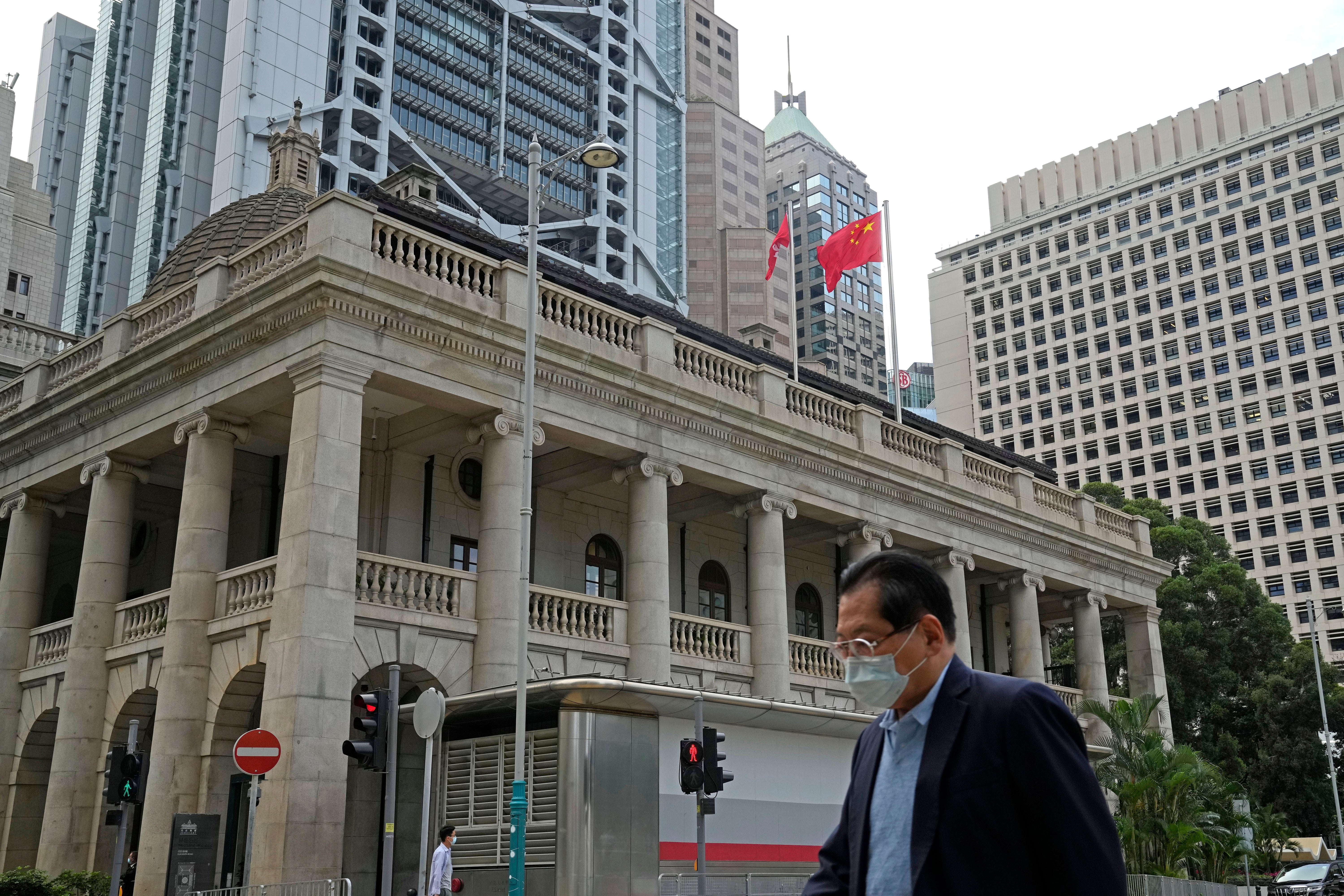Top Canadian judge steps down from Hong Kong's top court following other resignations
Hong Kong officials say a former chief justice of the Supreme Court of Canada is stepping down from the city's top court

Your support helps us to tell the story
From reproductive rights to climate change to Big Tech, The Independent is on the ground when the story is developing. Whether it's investigating the financials of Elon Musk's pro-Trump PAC or producing our latest documentary, 'The A Word', which shines a light on the American women fighting for reproductive rights, we know how important it is to parse out the facts from the messaging.
At such a critical moment in US history, we need reporters on the ground. Your donation allows us to keep sending journalists to speak to both sides of the story.
The Independent is trusted by Americans across the entire political spectrum. And unlike many other quality news outlets, we choose not to lock Americans out of our reporting and analysis with paywalls. We believe quality journalism should be available to everyone, paid for by those who can afford it.
Your support makes all the difference.A former chief justice of the Supreme Court of Canada is stepping down from Hong Kong's top court, the city's officials said Monday, following a raft of other overseas judges' resignations from the court amid concerns about Hong Kong's judicial independence.
Beverly McLachlin would end her term serving as a non-permanent overseas judge at Hong Kong's Court of Final Appeal, Hong Kong's judiciary confirmed. Officials did not give details.
Also Monday, a British judge who resigned from the same court last week said he stepped down because the rule of law in the city is in "grave danger” and judges operate in an “impossible political environment created by China.”
Jonathan Sumption, who had served as a non-permanent overseas judge on Hong Kong’s Court of Final Appeal, described a growing “paranoia of the authorities” and judges being intimidated by a “darkening political mood” in the Asian financial hub in an article published by the Financial Times on Monday.
“Hong Kong, once a vibrant and politically diverse community, is slowly becoming a totalitarian state. The rule of law is profoundly compromised in any area about which the government feels strongly,” he wrote. "The least sign of dissent is treated as a call for revolution."
He wrote that he remained on the court in the hope that the presence of overseas judges would help sustain the rule of law, but “I fear that this is no longer realistic.”
McLachlin and Sumption were the latest of several overseas judges who have quit Hong Kong's highest court in recent years.
Hong Kong, a former British colony, is a common law jurisdiction, unlike mainland China. After the city returned to Chinese rule in 1997, non-permanent overseas judges have consistently served on its top court. Fifteen such judges served in 2019. About seven remain.
In 2022 another British judge, Robert Reed, stepped down while saying the administration "has departed from values of political freedom, and freedom of expression.”
Another judge, Lawrence Collins, resigned last week, telling The Associated Press that his departure was “because of the political situation in Hong Kong. But he said he continues “to have the fullest confidence in the court and the total independence of its members.”
Rights groups and critics say Chinese authorities' enactment of a 2020 national security law has eroded Hong Kong's judicial independence and all but wiped out public dissent. Many pro-democracy activists have been arrested under the law.
In May, a Hong Kong court found 14 pro-democracy activists guilty of conspiring to commit subversion in the city’s biggest national security case to date. They were among 47 activists accused of attempting to paralyze Hong Kong’s government and topple the city’s leader by securing the legislative majority necessary to indiscriminately veto budgets.
The Beijing and Hong Kong governments have insisted that the law has helped bring back stability following huge anti-government protests in 2019.